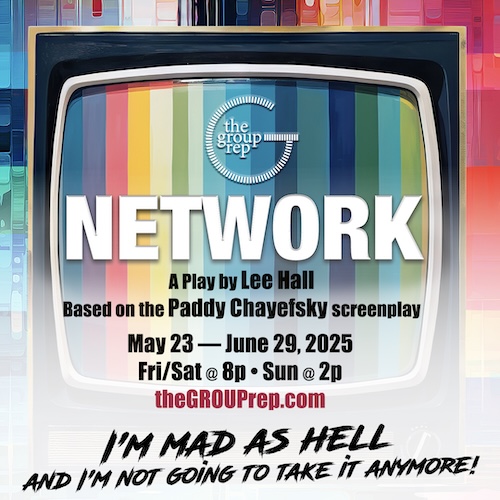Sweet Charity
Reviewed by Katie Buenneke
Reprise 2.0
Through July 1
If you didn’t know any better, it would be easy to forget that Sweet Charity, now playing at UCLA, is a musical from the 1960s. What clearly makes it a product of that era is the really good score by Cy Coleman, the kind you don’t often hear in contemporary musical theater. But despite that and a few dated references, overall this show feels surprisingly contemporary.
It’s tempting to think that all works from an earlier era are period pieces. For example, How to Succeed in Business without Really Trying, however enjoyable, seems firmly entrenched in the 1960s. Similarly, as many times a Shakespearean play gets transplanted to a contemporary setting, it’s hard to avoid some of the sexist and racist undertones in works like Taming of the Shrew or The Merchant of Venice. But surprisingly, happily, Sweet Charity has stood the test of time.
The story follows the title character (played winsomely by Laura Bell Bundy), a brassy, spunky woman who works as a dance hall hostess. She’s not a sex worker, but she’s what you might call “sex worker-adjacent:” men hire out the hostesses for dances, and some hostesses, outside work hours, do more than just dance. She’s had plenty of rotten boyfriends who have taken advantage of her, financially and emotionally. Things start looking up, though, when she meets Oscar (Barrett Foa), a kind, nervous man. They start a whirlwind romance — but the other shoe drops, as it always does. (Is a spoiler alert necessary on a 50-year-old show?)
The production, helmed by Kathleen Marshall, feels more choreographed than directed (Marshall does double-duty), perhaps because of the pared-down set, which makes the production feel more abstract. There’s a reassuring undercurrent that this is a story about women, being told by women. Take the signature number, “Hey Big Spender,” where the employees of the dance hall try to entice the male guests to hire them. There’s a bit of insouciance and world-weariness inherent in the lyrics and composition, but under Marshall’s direction, the women’s message is clear: they’re here for a paycheck, and nothing else. There’s nothing revolutionary about the production, but it’s a good show staged fairly well, which is always a pleasure.
The production is done a disservice by an apparent lack of rehearsal time, though. In some group numbers, members of the dance ensemble aren’t perfectly in sync, and in a production of this caliber, that sticks out like a sore thumb. Although she has the choreography down, Bundy at times must struggle with her breath. (It’s worth noting that I saw the show on opening night, so these problems may have resolved themselves by now.). Bundy also does herself a disservice by occasionally trying to emulate Gwen Verdon (the original Charity on Broadway) when she sings, rather than letting her own beautiful, naturally bright voice shine through.
While Gerald Sternbach’s music direction is delightful and strong, there are some unexpected design choices. Bundy’s wig, which looks like Little Orphan Annie’s hair bleached blond, looks painfully artificial under stage lights. Many of Angela Balogh Calin’s costumes feel anachronistic in a bad way, as if they were plucked off the racks of Forever 21.
But the show really wallops you emotionally at the end, and Marshall and Bundy both do its final moments justice. Up to the last few minutes, Foa’s Oscar is so unthreatening and charming, you have to wonder why he hasn’t settled down yet when he’s clearly looking for love. Then he calls everything off with Charity, citing his inability to come to terms with her profession, and resenting the fact that she’s not a virgin. We, the contemporary audience, recognize the patriarchy rearing its ugly head, but we wonder if Charity — sweet Charity, who we’ve come to love through the course of the show — will see this too. Whether she does or not remains ultimately ambiguous, but her spirit remains uncrushed, and we can’t help but hope her life is looking up.
Reprise 2.0 at UCLA’s Freud Playhouse, 245 Charles E Young Dr E, Westwood; Tues.-Fri. at 8 p.m.; Sat., 2 p.m. and 8 p.m., Sun. at 2 p.m. and 7 p.m.; through July 1. www.Reprise2.org; Running time: Two and a half hours with a 20-minute intermission.











